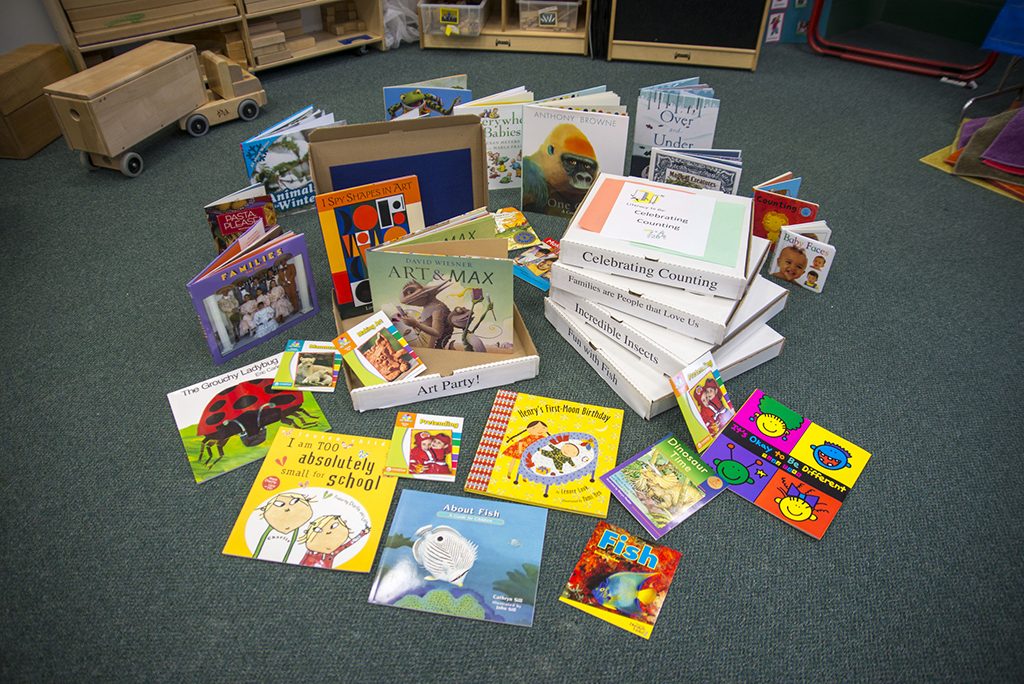Maine Schools in Focus: Lifespan Literacy Community supports grassroots initiatives statewide

Susan Bennett-Armistead, Associate Professor of Literacy
In 2012, the state of Maine developed a statewide literacy plan. An integral part of that plan was to develop grassroots literacy initiatives across the state, designed to support, improve and celebrate literacy among all the state’s citizens, from birth throughout life. Individual communities developed their own plans to meet the needs of the people that live there. Some focused on developing increased programming for families with young children, others worked to create after-school tutoring programs for school-age children, still others celebrated local authors and libraries. Some did all of the above.
Literacy faculty at University of Maine found ourselves in an odd position. Because of our statewide focus, we could not really serve as members of local community groups but we wanted to support the initiatives in those communities. Instead of a local level group, we created a consortium of groups that work at a statewide level and engage in a variety of activities that local groups could try as well. Partnering with Raising Readers, the Maine State Library, Literacy Volunteers of Bangor, Adult Education in 13 communities, and the leadership of the Barbara Bush Foundation, we created The Literacy People of Maine. Meeting quarterly, we shared new initiatives each of us was engaged in and found ways, with the resources each of us had, to support each other.
Some examples of this include our faculty and Literacy Volunteers partnering with Darling’s Ice Cream for a Cause. This initiative involves book drives to collect gently used and new children’s books. Volunteers distribute the donated books to families from an ice cream truck along with free ice cream. This family-fun service takes place at sites where free lunches are distributed in the greater Bangor area (e.g., Old Town, Bradley, Winterport, Bangor, Alton, etc.). Additionally, UMaine faculty started and now continue to support Literacy Volunteers of Bangor as they take the lead on putting on a Literacy Tea each spring to celebrate children’s books and raise funds for Literacy Volunteers. Further, for more than a year now, several UMaine faculty have worked with Adult Education to provide literacy support to female inmates at the Penobscot County Jail through book clubs, writing groups, and family literacy groups. Currently we are working with the Barbara Bush Foundation, the Maine State Library, and Raising Readers to create “Lit Kits” for kindergarten teachers using books distributed to families by Raising Readers.
About a year ago, The Literacy People consortium morphed into The Lifespan Literacy Community (LLC) and is now housed in the Lindlof Center in Shibles Hall. This move has allowed us to focus on developing a “cradle to grave” approach to supporting literacy. The LLC provides a context for tutoring school age children, a behind-the-glass training center for master’s degree program students in literacy to engage in intervention with struggling readers, video- and audio-recording capability to archive sessions for use in both classroom examples and later training sessions, and a site for research. We are currently working with Literacy Volunteers of Bangor to offer volunteer training sessions so that UMaine students can act as literacy volunteers for other adults who wish to improve their literacy or English language skills. Finally, we have a parent and child play group, The Language and Literacy Play Partners, designed to work with parents and their young children to promote the children’s language and literacy skills.
Parent educator Sayoko Mori facilitates The Language and Literacy Play Partners program with the support of Dr. Susan Bennett-Armistead. The families come from all over the community, including children of international students, children referred through the Conley Speech and Language Center, and Child Development Services. We also reach out to groups serving children in foster care and teen parents and their babies. Each hour-long weekly session is designed to model for families play-based strategies for developing their children’s vocabulary, world knowledge, and awareness of and love for books, storytelling, and songs. Divided into age groups from birth to 30 months, families enjoy meeting other families with children their children’s age and learning from each other’s experiences. Field trips to the farm, campus gardens, and simply walking on campus have allowed Ms. Mori to demonstrate ways families can incorporate language development into their everyday experiences.
Dr. Bennett-Armistead is currently undertaking a research study with the families to explore the effects of daily read aloud with their children. This study, done in partnership with a local high school honors student, will teach families strategies for maximizing read aloud time with even the littlest literacy learner. Results are expected later this spring.
The Lifespan Literacy Community, with its multi-agency support, links to university students and courses, and a broad focus of serving infants, school age children, adults as students, and pre-service and in-service teachers, is unique in the United States. It offers rich opportunity for instruction, research, service, and celebration of literacy in our state. This work has helped us focus on new directions for thinking about supporting children, families and adults with their literacy, but several questions remain, including:
- The need for tutoring is greater than the supply of tutors. In what ways might we incorporate undergraduate students into the tutoring sessions? What training might be needed for them to be effective?
- Other communities might want to replicate some or all of the programming we offer. How might our program support other versions of these services? What will people want to know about?
Those wishing to learn more about the LLC are welcome to contact Dr. Bennett-Armistead, susan.bennett-armistead@maine.edu.
Any opinions, conclusions, or recommendations expressed in the Maine Schools in Focus briefs are those of the authors and do not necessarily reflect institutional positions or views of the College of Education and Human Development or the University of Maine.
